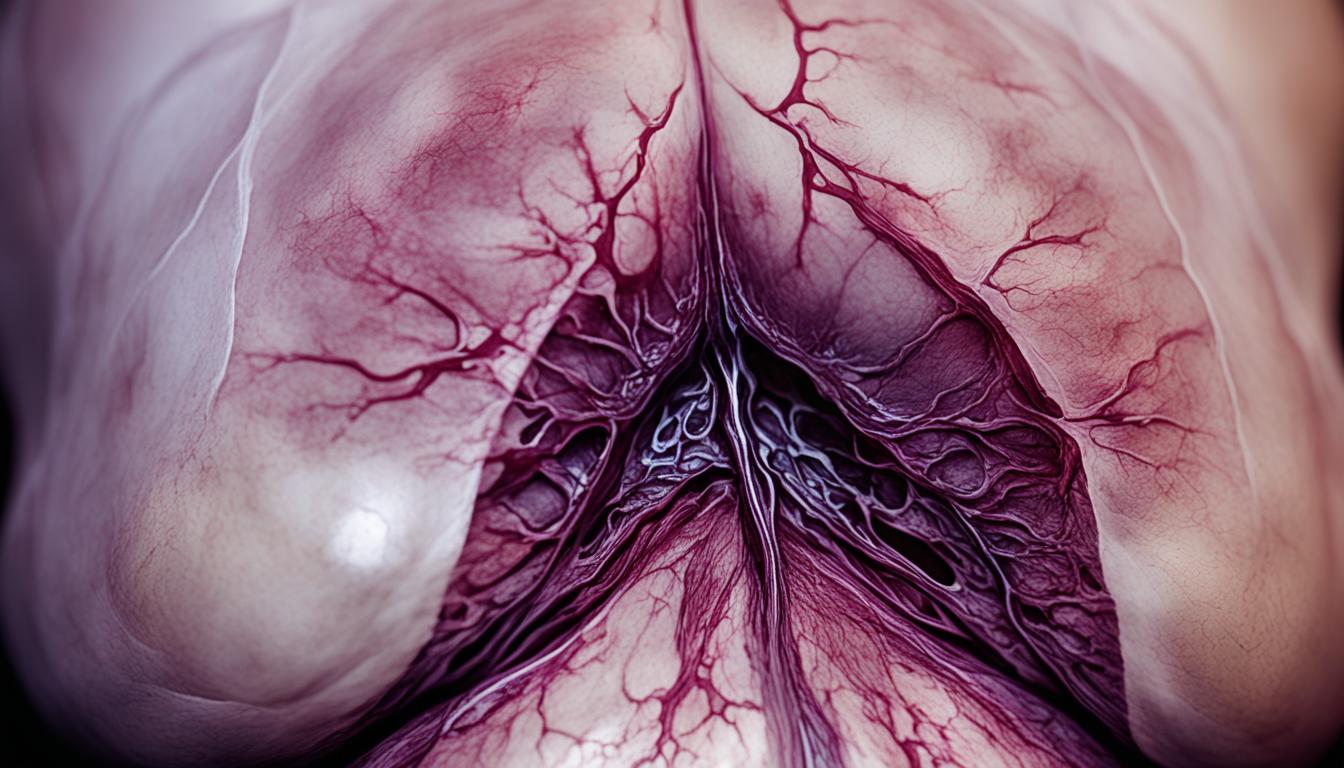Recurrent breast cancer is when the disease comes back after treatment. This includes surgery, chemo, or hormone therapy. It can also be called metastatic breast cancer. This is because it may reappear in other parts of the body. These parts could be the bones, liver, lungs, or brain.
The chances of it coming back vary. They depend on things like the first cancer’s stage and your treatment. Finding recurring breast cancer might need tests like mammograms or biopsies. These tests help by showing images or testing your blood for signs of the disease.
Treatments for this type of cancer include many options. There’s surgery, radiation, and drugs like chemo. Now, stem cell therapy is becoming a new choice. It uses special cells that can turn into others. These cells repair and bring medicine right to the cancer spot.
Key Takeaways:
- Recurrent breast cancer comes back after the first treatment.
- It can reappear in the same place or move to other parts of the body.
- Risk of it coming back varies, affected by the first cancer’s stage and treatments.
- Doctors use tests like imaging and biopsies to find it again.
- Treatments can involve surgery, radiation, chemo, special drugs, hormones, and stem cells.
Causes and Risk Factors for Recurrent Breast Cancer
Recurrent breast cancer happens when it comes back after being treated once. It’s a complex illness with many possible causes. Scientists don’t fully know why it comes back. Yet, they do know certain things can make it more likely to return. By knowing these risks, people and doctors can work to lower the chances of it coming back.
Potential Causes of Recurrent Breast Cancer
Several reasons can lead to breast cancer coming back:
- Residual cancer cells: Some cancer cells might stay after treatment. They can grow again over time, causing a new cancer.
- Ineffective treatment: The treatments may not kill off all cancer cells. This can make a new cancer more likely.
- Aggressive cancer cells: Some types of cancer are just more likely to come back, even if treated.
- Genetic factors: Inherited genes like BRCA1 or BRCA2 can raise the risk of a new cancer.
- Hormonal factors: Imbalances in hormones or too much estrogen can help cancer cells grow and spread.
Risk Factors for Recurrent Breast Cancer
Many factors can increase the chance of cancer coming back. These include:
- Being diagnosed young
- Having a very advanced initial cancer stage
- A tumor that’s larger in size
- Lymph nodes being involved in the cancer
- A cancer that’s felt to be high-grade
- Having certain genetic mutations
- A treatment that wasn’t very effective
- For some, the new cancer comes shortly after the first was treated
Knowing these risks is important. It helps find those more likely to see cancer return. Working on these risks can help lower the chance of another cancer. It’s a key part of staying healthy after a first round of treatment.
Stem Cell Therapy for Recurrent Breast Cancer
Stem cell therapy is a promising treatment for breast cancer recurrence. It uses cells that can renew and turn into different cells. This offers new hope in fighting cancer with targeted cell therapies.
This method aims to use the body’s own repair system. It helps fix damaged areas and sends treatment straight to the cancer. Compared to surgery, radiation, or chemo, stem cell therapy may bring better results. It could also let patients have a better life while fighting their cancer again.
In Thailand, advanced stem cell treatments for breast cancer are available. The country has modern medical centers and top doctors. This setting is ideal for cutting-edge therapy. The combination of skilled experts and the latest in regenerative medicine makes Thailand a leader in the fight against breast cancer recurrence.

